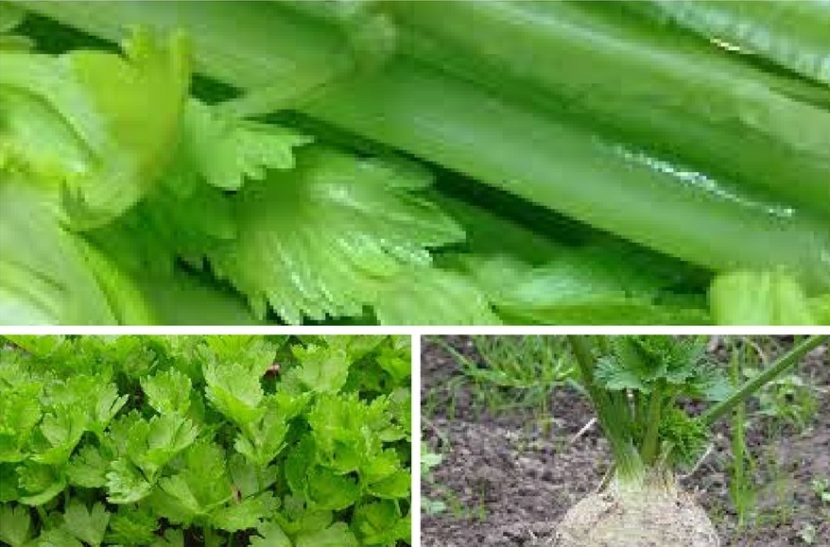Apium graveolens
Cultivation
Grow from seedlings, because the plant grows slowly in the beginning.
Distance between plants
At least 40 cm (15 in) between rows and 30 cm (12 in) between plants in a row.
Location
Half-shaded.
Amount
6 to 10 plants per person.
Time of planting
End of January and February for seedlings in heated greenhouses. If the greenhouse was not too warm, you can transplant the seedlings out soon, because the plants are not harmed by cold. It germinates in three weeks.
Fertilization
With home compost or barn manure. Additionally with wood ash, and comfrey and nettle brew.
Watering
It needs regular watering, twice a week, 30 cm (12 in) deep.
Celery’s good neighbors
Broccoli, cauliflower, Brussels sprout, Chinese cabbage, kohlrabi, cabbage, beans, peas, cucumbers, leek, tomatoes, pepper, lettuce, thyme.
Celery’s bad neighbors
Carrots, parsley, parsnip, potato.
Diseases and pests
It is not problematic. Keep the right distance between rows and soft soil with good drainage. Don’t use too much nitrogen. If the soil lacks boron, tubers can start decaying.
Celerys’storage
If the garden is located on well drained ground and the plant is protected from cold, it can be stored in the garden, or in cool and moist basements, dug in sand. Don’t store together with plants that smell stronger (bulb vegetables, herbs), as it will take on their odor.
Food
Leaves, tubers and the lower parts of leaf stems. They contain a lot of vitamins, minerals and essential oils.
Important
When transplanting, don’t plant deeper than the seedlings had grown. It succeeds best in open, sunny, windy parts of the garden. It likes humus soil, rich in nutrients.
Miscellaneous
If you want the leaves to be more crisp and whiter, cover with straw at the sides of the plant.

